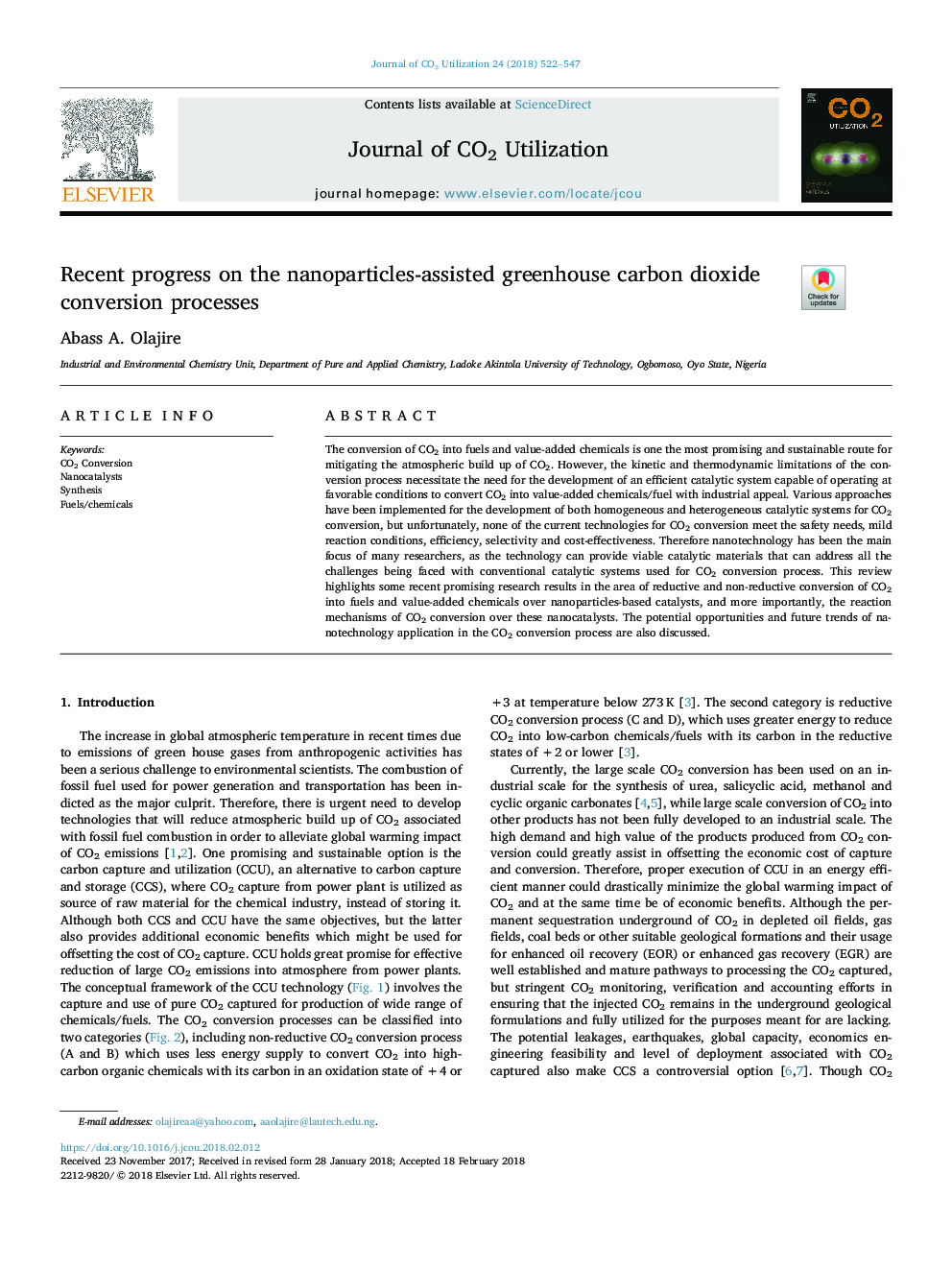| Article ID | Journal | Published Year | Pages | File Type |
|---|---|---|---|---|
| 6528907 | Journal of CO2 Utilization | 2018 | 26 Pages |
Abstract
The conversion of CO2 into fuels and value-added chemicals is one the most promising and sustainable route for mitigating the atmospheric build up of CO2. However, the kinetic and thermodynamic limitations of the conversion process necessitate the need for the development of an efficient catalytic system capable of operating at favorable conditions to convert CO2 into value-added chemicals/fuel with industrial appeal. Various approaches have been implemented for the development of both homogeneous and heterogeneous catalytic systems for CO2 conversion, but unfortunately, none of the current technologies for CO2 conversion meet the safety needs, mild reaction conditions, efficiency, selectivity and cost-effectiveness. Therefore nanotechnology has been the main focus of many researchers, as the technology can provide viable catalytic materials that can address all the challenges being faced with conventional catalytic systems used for CO2 conversion process. This review highlights some recent promising research results in the area of reductive and non-reductive conversion of CO2 into fuels and value-added chemicals over nanoparticles-based catalysts, and more importantly, the reaction mechanisms of CO2 conversion over these nanocatalysts. The potential opportunities and future trends of nanotechnology application in the CO2 conversion process are also discussed.
Keywords
Related Topics
Physical Sciences and Engineering
Chemical Engineering
Catalysis
Authors
Abass A. Olajire,
